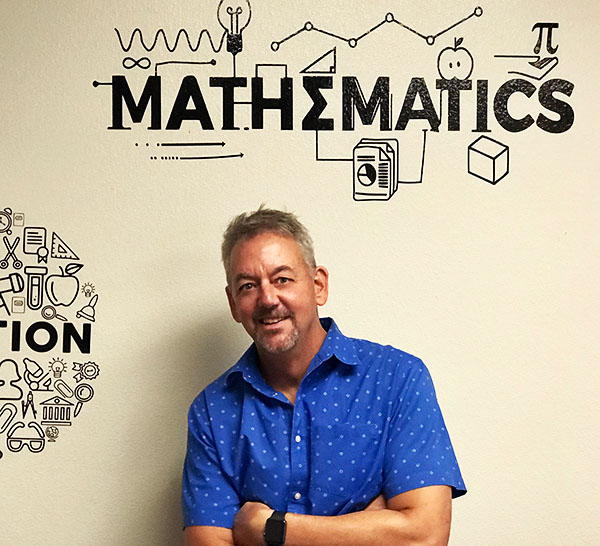
Master of Arts in Mathematics for Teaching Service (MATS)
The Master of Arts in Mathematics for Teaching Service (MATS) is designed for students who wish to deepen their understanding of both mathematics and mathematics education. The program combines advanced coursework in mathematics with seminars focused on learning theories, pedagogy, and educational research. Some students enroll in the program to prepare to teach community college mathematics. Others are current secondary math teachers who want to deepen their content background and be eligible to teach dual enrollment classes.
Students must complete a graduate program of at least 30 units, of which 24 units must come from the Department of Mathematics and Statistics, and at least 15 units must be numbered 600 or higher. Each student’s program of study is developed in conference with and approved by the graduate adviser.
Information about the application process can be found here. The program offers two specializations, outlined below.

Mathematics for Community College Teaching
This specialization is designed to satisfy the requirements for teaching service at the community college level. Students must hold a bachelor’s degree in mathematics (or equivalent) and have completed six units selected from Abstract Algebra Real Analysis, second course in Linear Algebra. For a Community College specialization, the program requires at least one course be completed that is numbered MATH 620 or greater.
| All of the following |
|
| 6 units selected from the following |
|
| One of the following |
|
Mathematics for Secondary Teaching
This specialization is designed to strengthen the mathematical background of secondary teachers, while providing coursework to better understand the learning and teaching of mathematics in grades 7-12. Students should have the equivalent of a bachelor’s degree in mathematics before entering the program.
| All of the following |
|
| One of the following |
|
| One of the following |
|
| One of the following |
|
| 6 units selected from the following |
|
| One of the following |
|
Degree Learning Outcomes
Listed below are the applicable Degree Learning Outcomes (DLOs) for this degree.
-
Compare learning theories.
Students will compare and contrast a variety of major learning theories in mathematics
and science education across a number of dimensions, such as the nature and types
of knowledge, learning processes, the nature of mathematics, and assumptions about
learners.
Courses: MthEd 603. -
Synthesize and apply mathematics education research.
Students comprehend, synthesize and apply empirical and theoretical research
papers to discuss issues in mathematics education, such as conceptions commonly held
by Gr 7-14 students for different mathematical topics, teaching strategies that support
student learning, and perspectives on equity.
Courses: MthEd 603.
Electives: MthEd 604, MthEd 605, MthEd 606, MthEd 607, MthEd 608. -
Develop scholarly written communication skills.
Students will write clear, concise, well-organized essays that draw upon findings
from research as evidence.
Courses: MthEd 603.
Electives: MthEd 604, MthEd 605, MthEd 606, MthEd 607, MthEd 608. -
Understand foundational graduate level mathematics.
Students will comprehend and apply selected constructs, principles, and theorems
in core branches of mathematics, namely abstract algebra, analysis, geometry or chaos
and fractals.
Courses: Math 600 or Math 510; Math 601, 620, or Math 520; Math 602, 630, or Math 530.